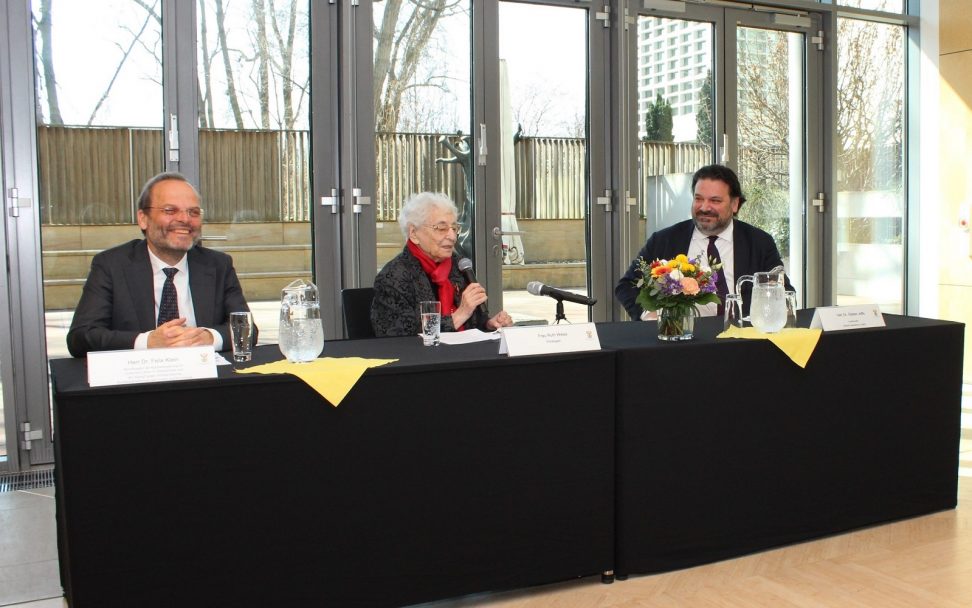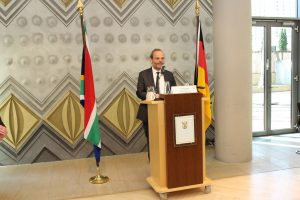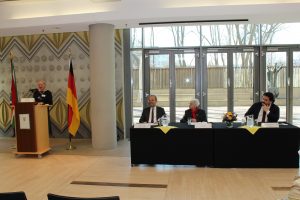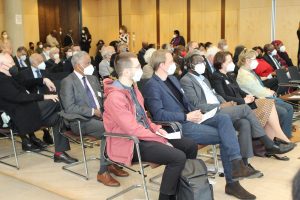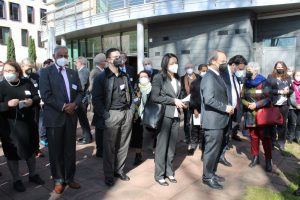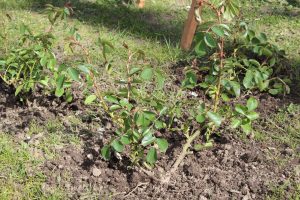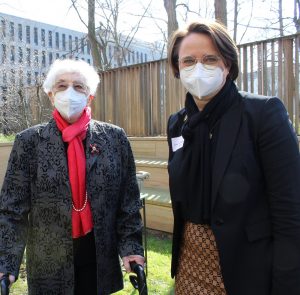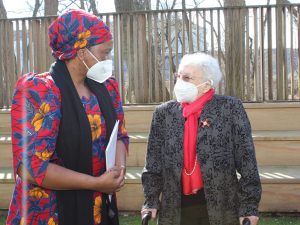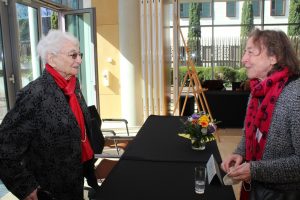To honour the German-Jewish African journalist and anti-apartheid activist Ruth Weiss, the Embassy of the Republic of South Africa planted a “Queen of Sheba” rose in the Embassy Garden on 24 March 2022. The ceremony was attended by around 80 representatives from politics and civil society. Inspired by the tree garden of the Yad Vashem Museum in Tel Aviv, which was planted in honour of non-Jewish people who made great sacrifices for the Jewish people during the Holocaust, the “Queen of Sheba” rose is intended to commemorate Ruth Weiss’ outstanding commitment and that of all Jews against the apartheid regime in South Africa.
Although the Jewish population made up only about 2.5% of the white population and about 0.3% of the total population of South Africa during apartheid, they played a major role in the struggle against the racist system. Many European Jews had fled the Holocaust to South Africa at the time, where, with the introduction of the apartheid system, they were once again confronted with state oppression of certain population groups – including Ruth Weiss. However, instead of closing her eyes to racism in her new homeland as a white Jew, Ruth Weiss confronted the repressive policies of the apartheid regime with courageous journalism, or, as Dr Felix Klein, the Federal Government Commissioner for Jewish Life in Germany and the Fight against Anti-Semitism called it, with “courage for truth and courage for humanity”. The life and work of Ruth Weiss show that the fight against anti-Semitism and against racism are neither mutually exclusive nor in competition with each other – rather, they complement each other, Dr Klein emphasised.
Dr Gideon Joffe, Chairman of the Jewish Community of Berlin, and Laura Joyce, Counsellor of the South African Embassy in Berlin, representing H.E. Ambassador Stone Sizani, echoed this in their speeches. Laura Joyce once again underlined the importance of the Jewish population in the struggle against apartheid and for today’s South Africa: “If people like Ruth Weiss had not immersed themselves in the fate of the black people of South Africa; if people like her did not link their own lives with those of the oppressed; and if experiences of discrimination that Mrs Weiss suffered in her youth in Germany did not find a connection for her in her new homeland, then South Africa would have been doomed.”
The planting of the “Queen of Sheba” rose, whose name is borrowed from the Bible, is also intended to establish a symbolic connection between the Lemba, an ethnic group of Jewish origin in Southern Africa, and the Jews of European origin in South Africa, as well as between the three Abrahamic religions.
Please find the speech by Dr. Felix Klein, Federal Government Commissioner for Jewish Life in Germany and the Fight against Anti-Semitism, here.
The laudatio by H.E. Ambassador Stone Sizani is available for download here.
